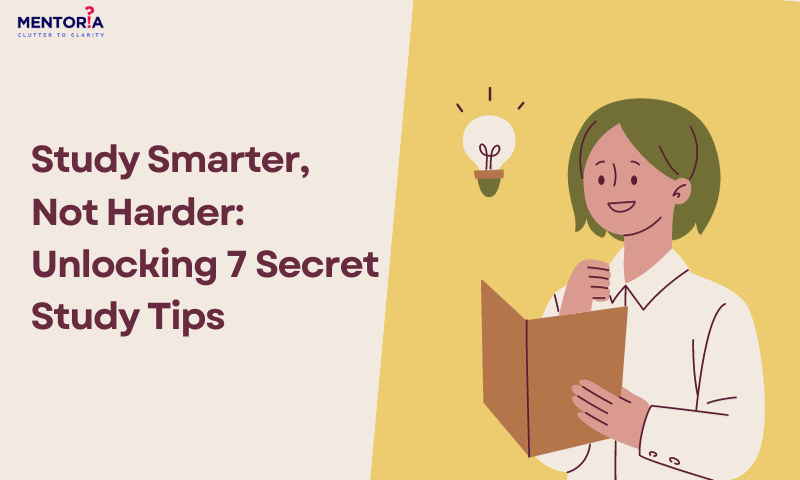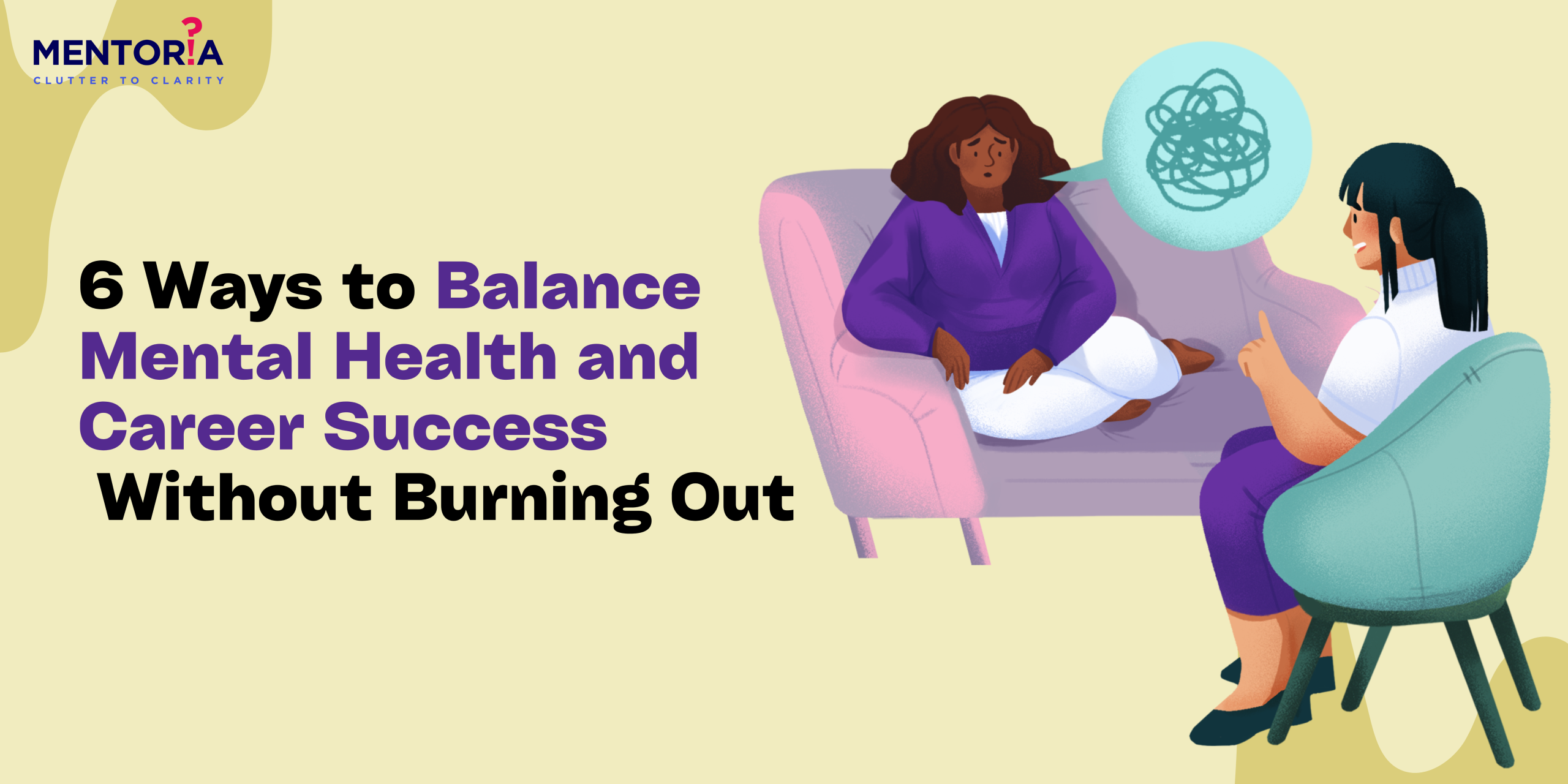Study Smarter, Not Harder: Unlocking 7 Secret Study Tips

Are you tired of burning the midnight oil, drowning in a sea of textbooks, and still feeling like you’re not mastering your subjects? Well, it’s time for a study revolution! We’re about to unveil seven game-changing study tips that will transform your academic life. Say goodbye to mindless cramming and hello to efficient, effective learning.
In the whirlwind of today’s high-speed world, mastering the art of studying smarter, not harder, is a game-changer. Get ready to elevate your productivity and comprehension through these effective strategies. Bid farewell to anxiety-ridden all-night study marathons and the daunting task of deciphering an endless sea of notes. It’s time to embrace the joy of learning while conquering those exams.
The Power Of Active Recall
Active recall is a study technique that involves actively stimulating memory recall during your study sessions. Instead of simply reviewing your notes or textbooks, actively try to remember and explain key concepts, facts, or formulas from memory. This method challenges your brain to retrieve information, which enhances memory retention and deepens your understanding of the material. It’s like flexing a mental muscle.
Active recall promotes an engaged and dynamic learning process. When you actively recall information, you reinforce neural pathways associated with that knowledge, making it easier to recall in the future. This technique is particularly effective when used alongside other methods, such as spaced repetition or flashcards. So, the next time you study, put your textbooks aside for a moment and challenge yourself with active recall.
Example- Active recall involves actively stimulating memory during the learning process. For instance, after studying a topic, close your books and try to recall the key points from memory. This could be by explaining the concept to yourself or jotting down what you remember.
Mastering The Pomodoro Technique
The Pomodoro Technique is a time management strategy that can transform your study sessions. It’s simple yet highly effective. The core idea is to break your study time into focused intervals, usually around 25 minutes each, followed by a short break of 5 minutes. After completing four such intervals, take a longer break, typically 15-30 minutes.
This structured approach prevents burnout, maintains your concentration, and optimises productivity. It leverages the brain’s natural ability to focus intensely for short periods. By dividing your study time into manageable chunks, you can stay fresh, alert, and engaged throughout your sessions.
The Pomodoro Technique also adds an element of competition with yourself. Can you maintain your focus for the next 25 minutes? Knowing a break is just around the corner can boost your motivation. Try it, and you’ll be amazed at how much more you can accomplish with this time-tested method.
Example- set a timer for 25 minutes, fully immerse yourself in studying, and when the timer rings, take a 5-minute break to stretch or relax.
Embrace The Feynman Technique
The Feynman Technique, inspired by Nobel laureate Richard Feynman, is a powerful method for deepening your understanding of complex topics. It involves simplifying and teaching a concept to someone else, as if they were a complete novice. By doing this, you reveal gaps in your knowledge and identify areas where you struggle to explain the topic clearly.
The act of teaching forces you to break down complex ideas into simple, digestible parts. If you find yourself stumbling over an explanation, it indicates a need for further study in that area. This technique encourages active learning and self-assessment.
Moreover, teaching a subject to someone else is one of the best ways to truly comprehend it. It ensures you don’t merely memorise information but can explain and apply it confidently. The Feynman Technique is a secret weapon for conquering challenging subjects and achieving a deep, lasting understanding.
Example- The Feynman Technique is about simplifying complex ideas. Pretend to teach a concept to a child in simple terms. If you can’t explain it clearly, you haven’t understood it well enough.
Effective Note-Taking Strategies
Your notes should be your study companions, not stumbling blocks. To achieve this, adopt effective note-taking strategies. Begin by using a structured format like the Cornell Method or mind maps, which help you organise and connect information visually. During lectures or while reading, focus on jotting down key points, main ideas, and relevant examples. Keep your notes concise and legible to facilitate later review.
Additionally, consider incorporating colour-coding, highlighting, and mnemonic devices. These techniques make your notes visually engaging and memorable. Your notes should serve as a snapshot of your understanding, making complex ideas more accessible when you revisit them.
Effective note-taking is a skill that pays dividends. Well-organised and engaging notes can turn a bewildering topic into an approachable one, and they’re an invaluable resource when preparing for exams or writing papers. So, equip yourself with the right tools and strategies for effective note-taking.
Example – When taking notes, use abbreviations or symbols to jot down information quickly. For instance, “w/” for “with,” “->” for “leads to,” etc. This speeds up your note-taking process while ensuring you capture the essential points.
The Art Of Self-Testing
Regular self-testing is a potent study technique that can significantly enhance your understanding and retention of material. Instead of relying solely on passive reading or reviewing notes, actively engage with the material through quizzes, flashcards, or sample questions related to your subject.
Self-testing serves multiple purposes. It assesses your current level of understanding, helps identify areas of weakness, and reinforces your memory retrieval skills. When you answer questions or solve problems without external aids, you’re reinforcing your knowledge and building a more robust mental framework.
Don’t reserve self-testing for last-minute cramming. Integrate it into your regular study routine. It’s like friendly rehearsals before the big performance, ensuring you’re well-prepared and confident when it’s time for exams. Self-testing empowers you to take charge of your learning and make continuous improvements.
Example- After studying a topic, take a practice quiz or try to explain the concept to a friend. Testing yourself helps reinforce the information and highlights areas that need further review.
Optimise Your Study Environment
Your study environment plays a pivotal role in your overall productivity. Create a dedicated and clutter-free space for studying. Ensure that it offers good lighting, comfortable seating, and a quiet atmosphere. Some people find that soft background music or white noise can enhance concentration, while others prefer absolute silence. Experiment to discover your ideal environment.
Keep all your study materials, such as textbooks, notebooks, and stationery, within easy reach to minimise distractions. Organise your digital resources and devices to maximise efficiency. Your optimised study environment should be inviting and conducive to deep focus. When your surroundings are in harmony with your study goals, you’re more likely to stay on track and maintain concentration.
Example- Ensure your study space is well-lit, organised, and comfortable. Personalise it with motivating quotes, plants, or calming colours. A comfortable and inviting study environment enhances productivity and focus
Mindful Breaks For Maximum Productivity
Breaks are not just for rest; they’re strategic tools for maintaining productivity. During your study sessions, make the most of your breaks by engaging in activities that relax and refresh your mind. A short walk, stretching exercises, or deep breathing can help clear mental clutter and rejuvenate your focus.
The key is mindfulness. Avoid activities during your breaks that can hijack your attention, such as scrolling through social media or diving into unrelated tasks. The goal is to recharge your mental energy and return to your studies with renewed vigour.
Mindful breaks are essential for preventing burnout, reducing stress, and maintaining a healthy balance between work and relaxation. By incorporating these strategic pauses into your study routine, you’ll find that you can sustain your focus and productivity over more extended periods.
Example- During breaks, engage in mindfulness activities like deep breathing or a short walk. This clears your mind, reduces stress, and helps you return to your study session more focused and energised.
Study Tips With Mentoria!
There you have it—three secret study tips that can revolutionise your approach to learning. Active recall, the Pomodoro Technique, and the Feynman Technique are your secret weapons for efficient and effective studying. But remember, one size doesn’t fit all; experiment with these techniques to find your perfect study formula.
Effective study strategies empower you to study smarter, not harder, freeing up time for other pursuits and reducing stress. By incorporating these techniques into your routine and maintaining a positive mindset, you’ll not only boost your academic performance but also gain a deeper and more enjoyable understanding of your subjects. So, what are you waiting for? It’s time to unlock your full academic potential and embark on a successful learning journey!
We’re here to provide you with all the help! Kick-start your journey with Mentoria and discover the right fit for you. Feel free to call us to speak to our career mentors and choose the right guidance plan that suits your needs.
Mentoria’s career guidance programme enables you to choose your perfect fit from 3 streams, 850+ courses, and 12,000+ careers, and discover what will bring out the best in you.









